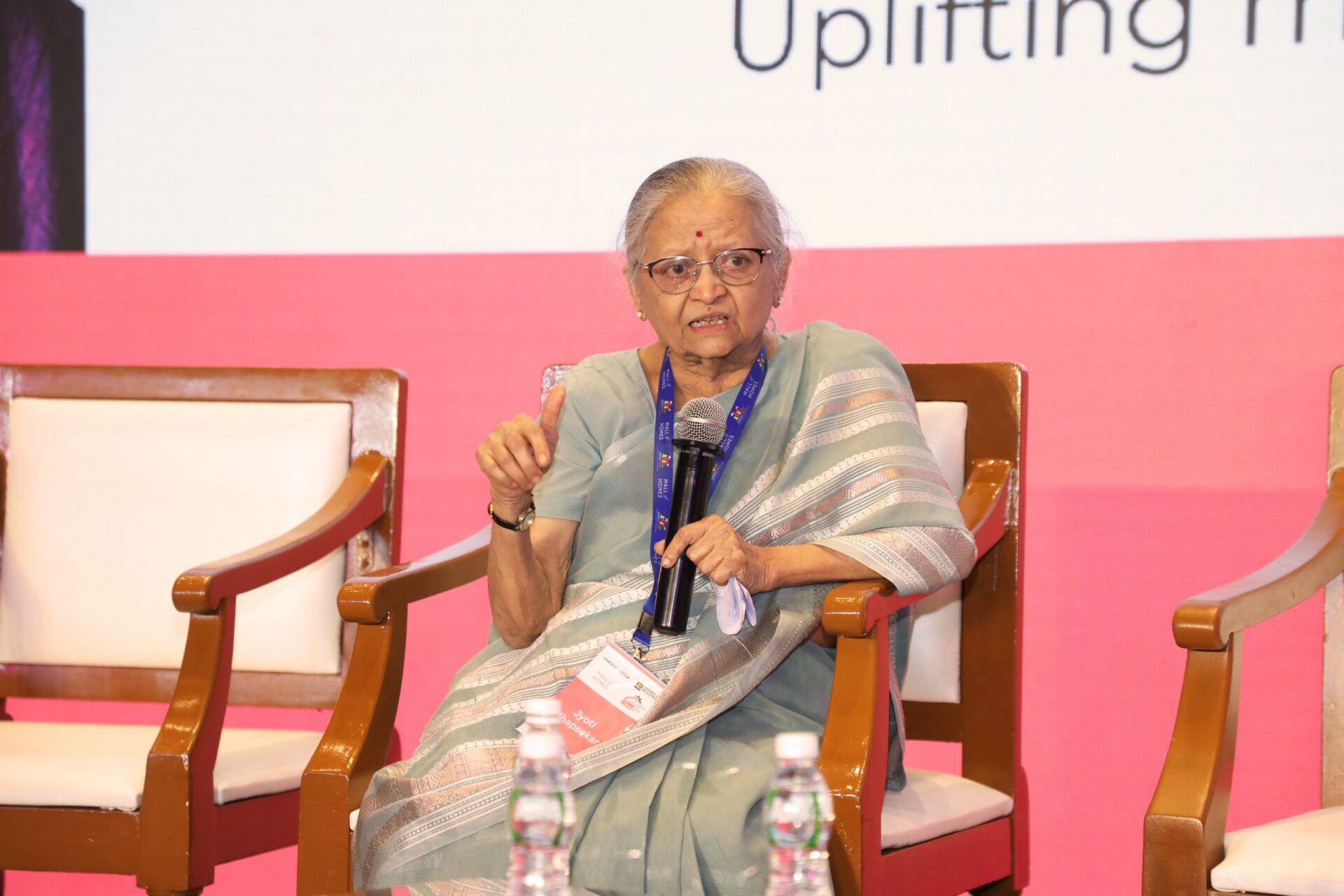One World. One Day. One Human.
In the labyrinth of Mumbai’s back lanes, amidst overflowing bins and unspoken hierarchies, thousands of women sort the city’s waste with bare hands and bowed heads.
Most passersby never notice them.
Municipal records rarely name them.
Governments rarely reward them.
But one woman stopped, looked, listened — and decided to build an army from the ashes of neglect.
Her name is Jyoti Mhapsekar, and she didn’t just organize waste pickers.
She gave them something far more powerful: dignity.
The Librarian Who Wrote a New Chapter
She wasn’t born into struggle.
She didn’t come from the slums.
She had books in her hand and theatre in her soul.
But when Jyoti saw injustice, she didn’t look away. She moved toward it with conviction.
By the late 1970s, she co-founded Stree Mukti Sanghatana (SMS) — a feminist collective that believed change could begin not in courtrooms, but in conversation, culture, and collective care.
India’s Feminism on Stage, Long Before It Hit Headlines
In an India still reluctant to speak of patriarchy, Jyoti wrote a play that echoed like a revolution.
“Mulgi Zhali Ho” — A Girl Is Born — questioned the very foundations of how we raise daughters.
Theatre halls turned silent.
4,000+ performances across Maharashtra.
And in every town, village, and chawl — women wept, laughed, and recognized themselves.
Jyoti wasn’t just writing plays. She was awakening a generation.
From Scripts to Sorting Sheds
But her greatest work didn’t unfold on a stage. It unfolded behind Mumbai’s buildings, where women sorted through trash without masks, contracts, or respect.
That’s where Jyoti decided to change the script — again.
She organized them.
Taught them to sort, segregate, and speak up.
Helped them form a union of dignity — the Parisar Bhagini Vikas Sangha.
Over time, these women began managing dry waste centers, composting hubs, and even bio-methanation plants.
They trained housing societies, liaised with municipal bodies, and introduced door-to-door waste segregation practices long before policies demanded it.
A Revolution Without a Slogan
Today, over 3,500 women across Mumbai operate with uniforms, ID cards, safety gear, savings groups, and municipal contracts.
They are no longer ‘kachrawalis’.
They are climate workers.
They are circular economy experts.
They are the backbone of urban sustainability.
And behind their rise is Jyoti Mhapsekar — the only leader who understood that India’s environmental justice would begin in its garbage lanes.
From Mumbai’s Slums to Global Summits
Jyoti’s model has been studied by UN bodies, environmental think tanks, and global cities.
She’s been honoured with:
🏅 The Ashoka Fellowship
🏅 The Nari Shakti Puraskar, India’s highest award for women
🌍 Invitations to climate conferences, circular economy forums, and global gender summits
But she never let the limelight blind her mission.
She always returns — to the sorting shed, the workers’ cooperative, and the theatre stage.
Her Words
“They say we deal with waste. But what we’re really cleaning is a system that stinks of inequality.”
“Every home in this city produces garbage. Every hand that cleans it deserves a name, a salary, and a salute.”
Why She’s a Human of Change
Because she saw value where others saw filth.
Because she gave India’s most marginalized women the confidence to claim a future.
Because she used art to awaken action.
Because she didn’t wait for a law — she became the justice.


